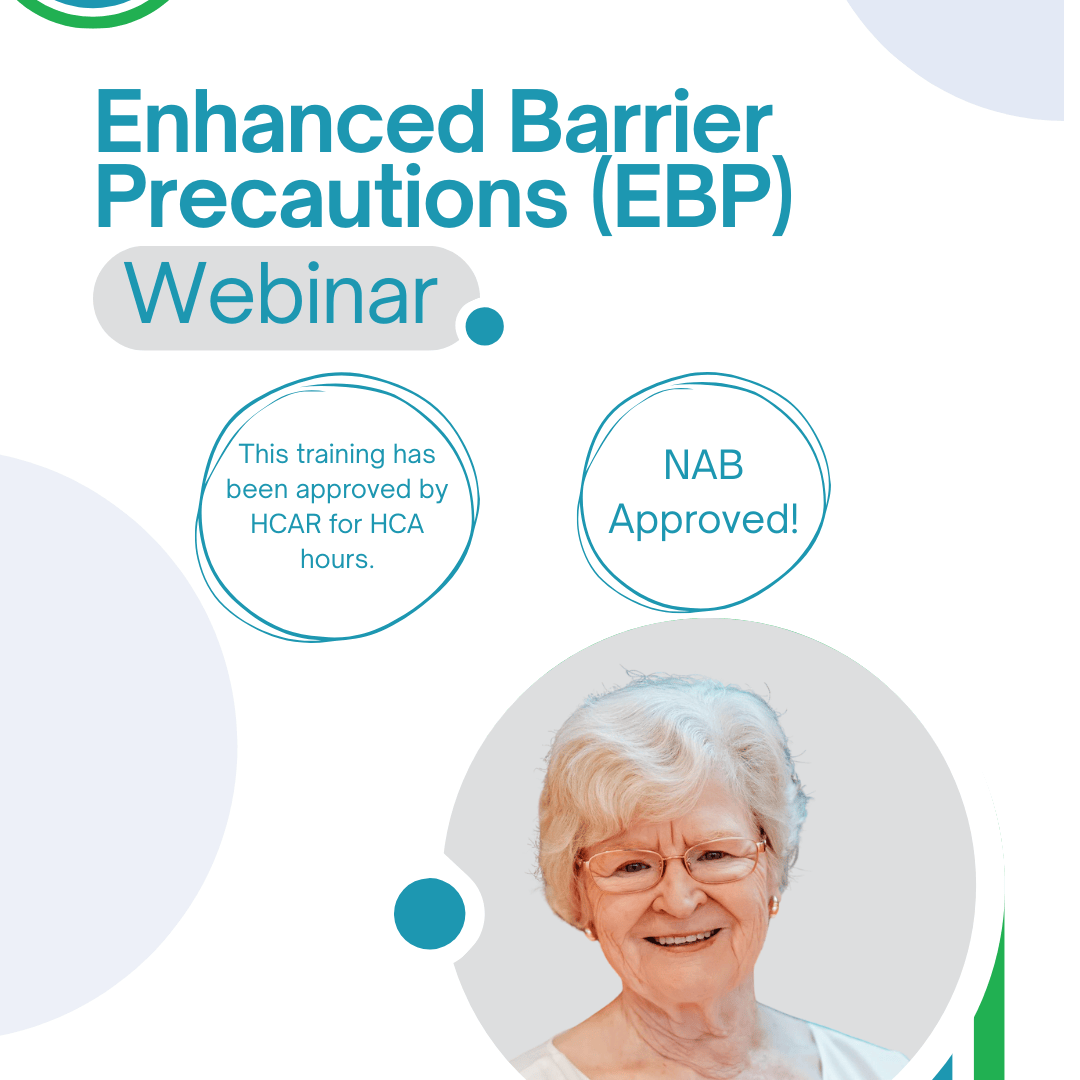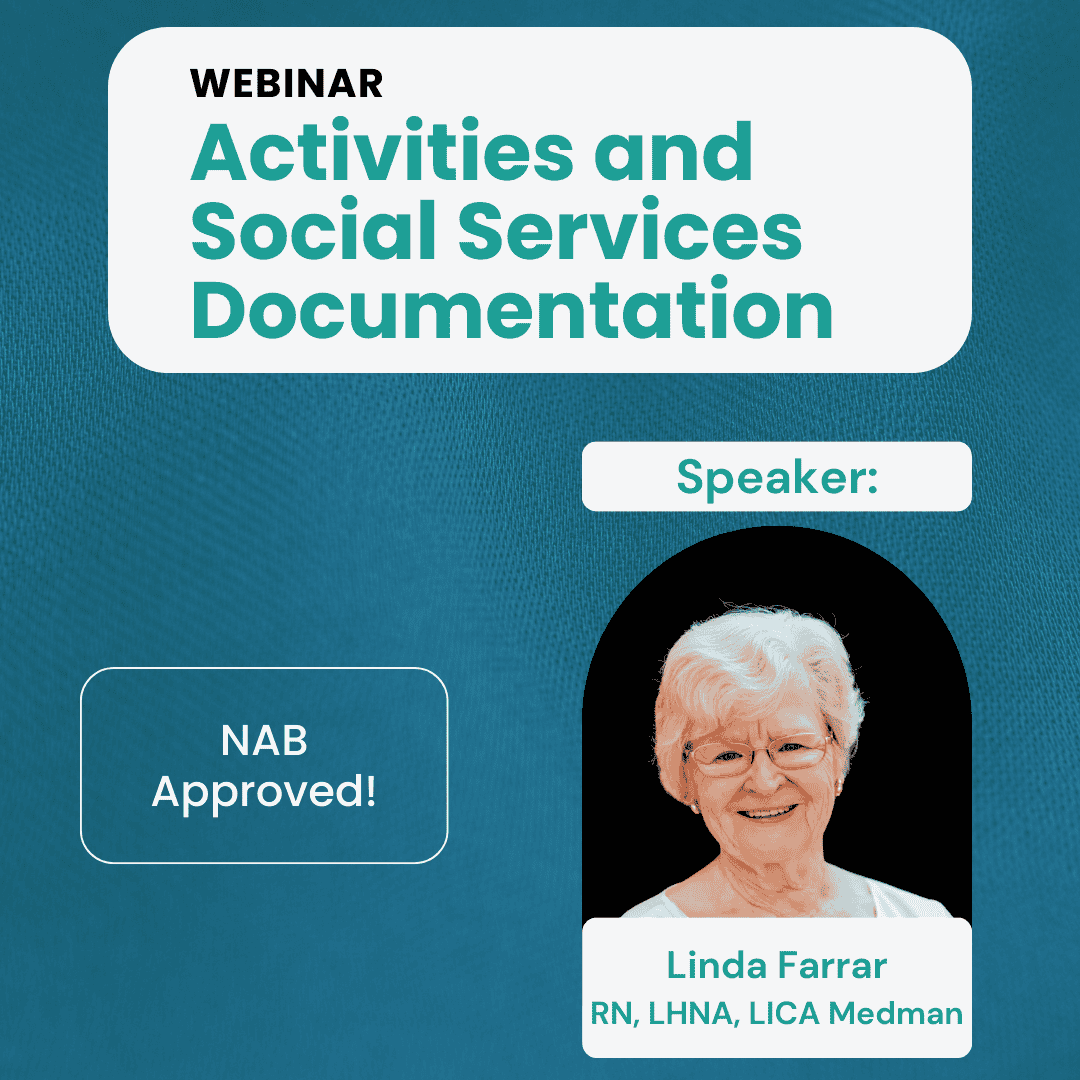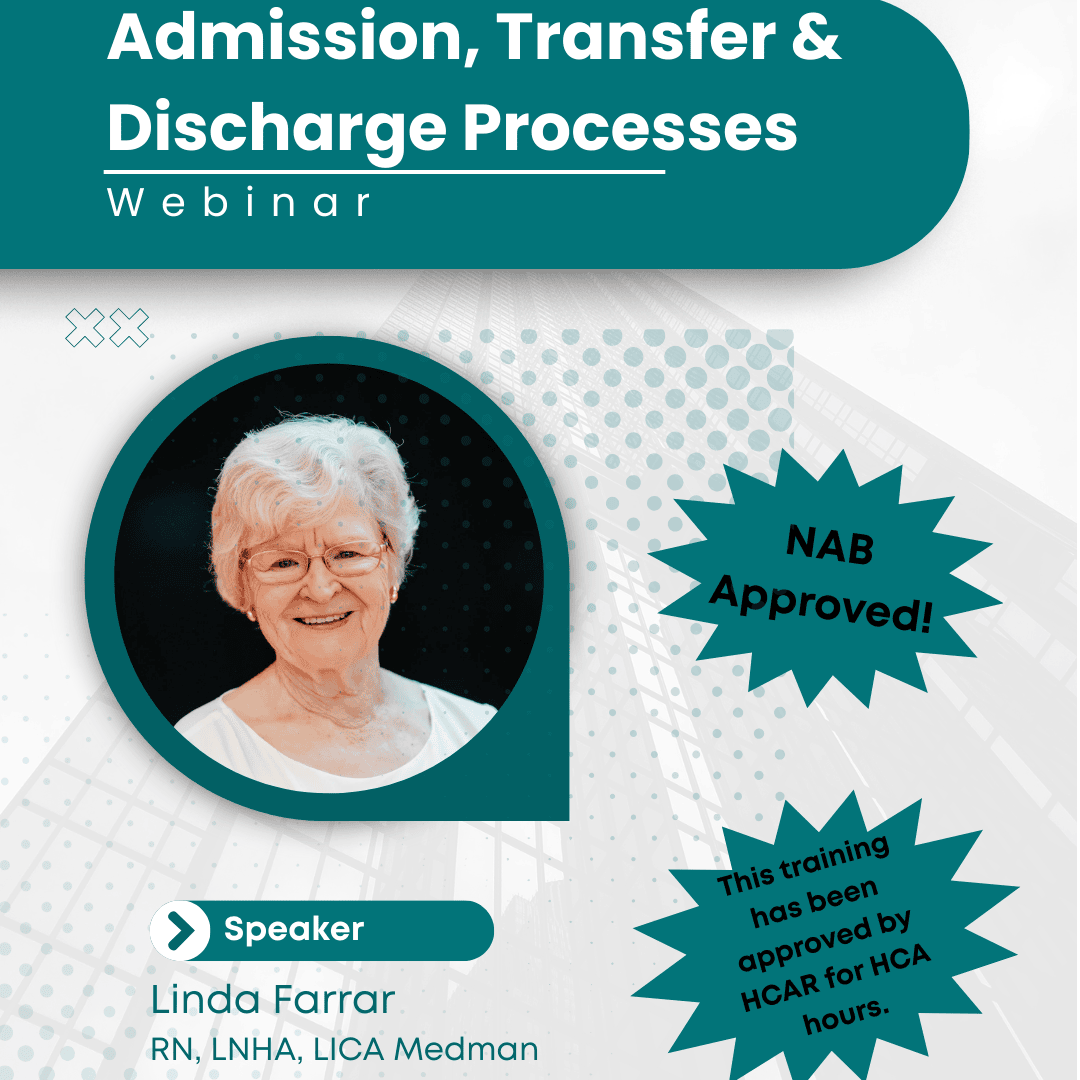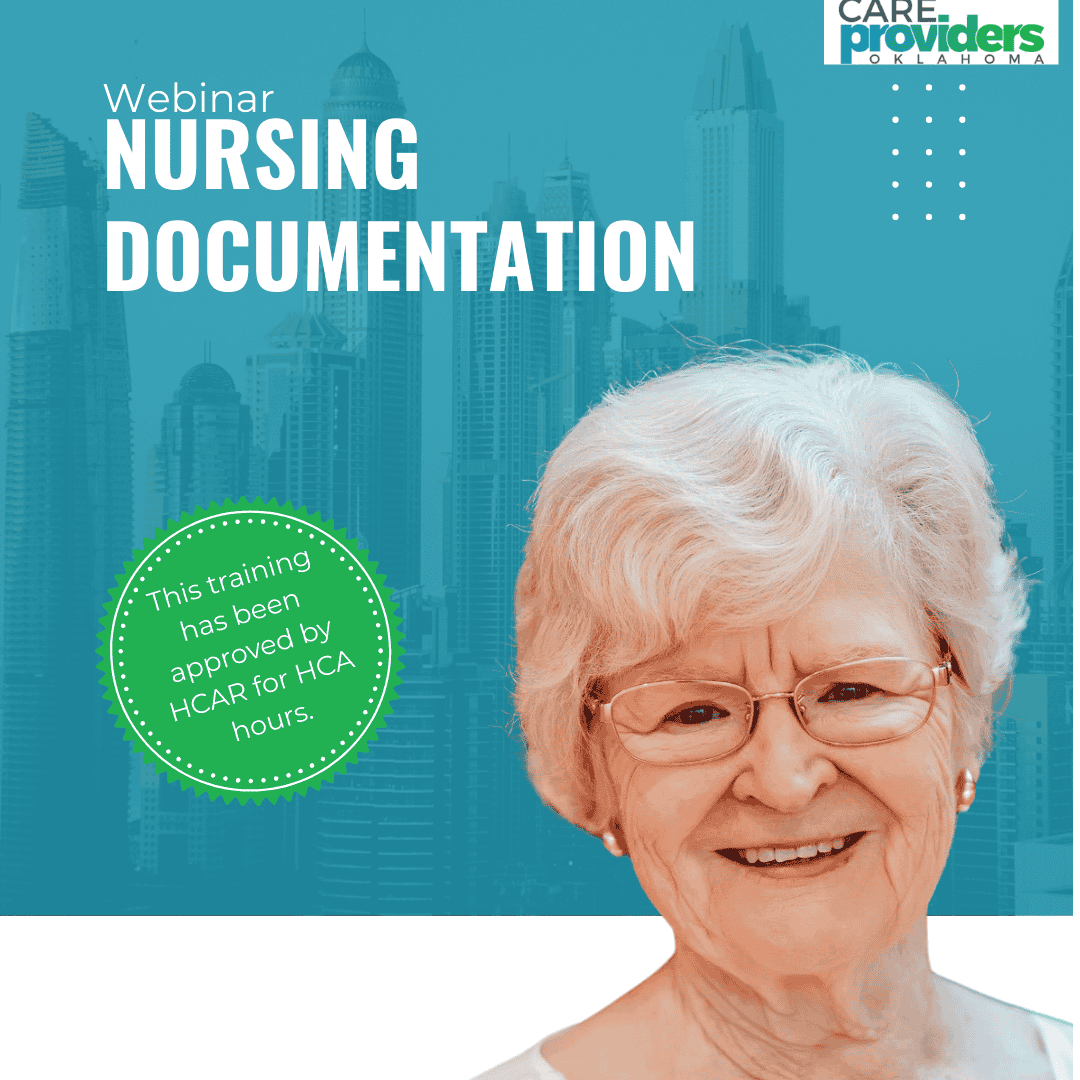Loading Shopping Cart Items...
Catalog
By the end of this session, participants will be able to:
Understand the significance of Enhanced Barrier Precautions in preventing MDRO transmission in nursing homes.
Identify residents who require EBP based on risk factors such as indwelling medical devices and chronic wounds.
Implement EBP protocols effectively, including proper gown and glove use during high-contact resident care activities.
Analyze potential barriers to EBP adoption and develop strategies to overcome them.
Evaluate the impact of EBP on infection prevention and resident health outcomes.
Apply best practices to ensure compliance with regulatory guidelines and improve infection control measures in nursing homes.
NAB Approval #20260812-1.25-A115380-DL
NCERS strives to approve quality programs whose content can reasonably contribute to the professional development of long term care administrators. Should you have any confidential comments concerning this program, please direct them to NAB by phone or email at (202) 712-9040 or cecomments@nabweb.org.
About this item
This presentation provides an in-depth look at Enhanced Barrier Precautions (EBP) in nursing homes, a targeted infection prevention strategy designed to reduce the transmission of multidrug-resistant organisms (MDROs). Participants will learn the importance of EBP, how to implement it effectively, and the impact it has on resident safety and healthcare outcomes. The session will cover best practices for gown and glove use, resident risk factors, and strategies for overcoming implementation challenges.
By the end of this session, participants will be able to:
- Understand the significance of Enhanced Barrier Precautions in preventing MDRO transmission in nursing homes.
- Identify residents who require EBP based on risk factors such as indwelling medical devices and chronic wounds.
- Implement EBP protocols effectively, including proper gown and glove use during high-contact resident care activities.
- Analyze potential barriers to EBP adoption and develop strategies to overcome them.
- Evaluate the impact of EBP on infection prevention and resident health outcomes.
- Apply best practices to ensure compliance with regulatory guidelines and improve infection control measures in nursing homes.
NAB Approval #20260812-1.25-A115380-DL
NCERS strives to approve quality programs whose content can reasonably contribute to the professional development of long term care administrators. Should you have any confidential comments concerning this program, please direct them to NAB by phone or email at (202) 712-9040 or cecomments@nabweb.org.



